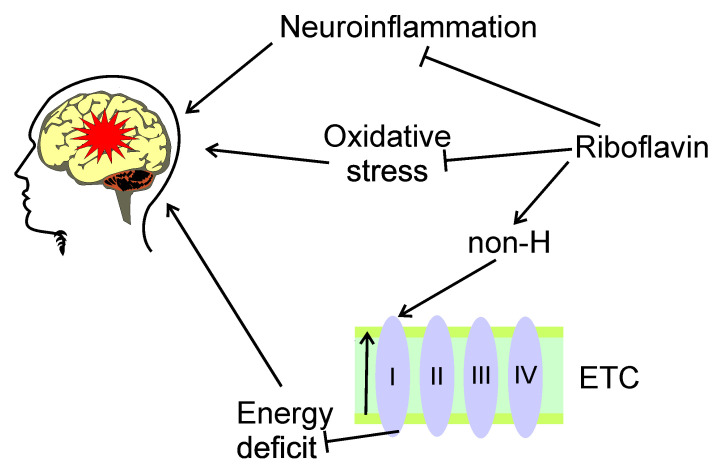Figure 3.
Potential beneficial effects of riboflavin in migraine. Riboflavin may exert protective effects in migraine, symbolized here by a red star, by the modulation of the mitochondria-energy production-oxidative stress pathway, but its details are poorly known. Riboflavin may reduce oxidative stress associated with migraine. Riboflavin targets complex I of the electron transport chain (ETC, simplified here to complexes I–IV), whose activity may decrease in migraineurs, especially those with non-H mitochondrial haplotype (non-H). Riboflavin may ameliorate energy deficit resulted from malfunction of the complex I, and, in this way, decreases migraine-related symptoms. These activities result from the involvement of riboflavin in mitochondrial homeostasis. Riboflavin may also reduce neuroinflammation, important in migraine pathogenesis.

